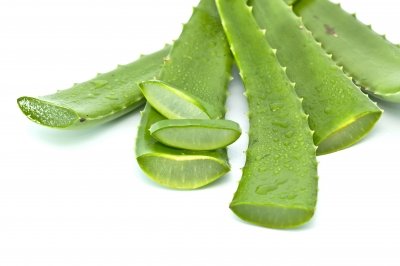Summer is upon us and in most of the country, that means mosquitoes. But you don’t have to douse you body with chemical-laden repellents when there are plenty of natural solutions out there. One of the most naturally soothing methods to aiding an annoying bite is with natural mosquito repellent.
Methods for Making Natural Mosquito Repellent
Biting flies, mosquitoes, gnats, bees, and beetles can make outdoor excursions unenjoyable. People often rely on insect repellents to keep bugs away. Repellents, such as those that contain DEET, may prove more hazardous to human health than the insects themselves–even if a person has been bitten. To repel insects safely, experiment with these different methods.
• Aloe vera, lavender, peppermint, and clove are examples of common natural mosquito repellent.
• Grow herbs and flowers like garlic, rosemary, tansy, catmint, basil, pennyroyal, and marigolds. These plants naturally repel many bugs.
• Avoid lotions or perfumes with a floral scent, which attract bugs.
• Remove standing water around the house where pests may gravitate to and lay eggs.
• Citronella candles and sprays work as excellent natural mosquito repellent. However, it’s best to keep the candles and sprays in relatively small areas.

Enlisting the Aid of Soothing, Natural Mosquito Repellent
Mosquitoes are attracted to several things. If we can reduce or even eliminate some of these things, we can greatly reduce itchy bug bites with several methods for natural mosquito repellent — in liquid, clothing and fragrance form.
Carbon Dioxide/ Lactic Acid: When we have been exercising or working vigorously, our bodies give off more carbon dioxide. If we are planning on enjoying mornings or evenings outdoors, we need to ensure that we have ceased physical activity and that we have cooled down to lessen our attraction to mosquitoes. Furthermore, we may also burn candles or other sources of carbon dioxide to deter mosquitoes to those sources rather than to ourselves. When exercising, we release lactic acid, to which mosquitoes are also attracted. As a preventative measure, we can reduce salty or potassium rich foods in our diet, as they contribute to the release of lactic acid.
Dark Clothing: Mosquitoes are highly attracted to dark clothing. Some will locate their hosts from a distance, using this technique. It is advised to wear light clothing when spending the evening outdoors.
Fruity/ Flowery Fragrances: Another thing that attracts mosquitoes are certain scents. Avoid wearing perfumes, body lotions, and sunscreens. We also need to be cognizant of our use of softeners and dryer sheets as they also lure mosquitoes.
Moisture:When perspiring, mosquitoes are drawn not only to the chemicals that are released as a direct result of sweating, but also to the humidity around our body. Furthermore, mosquitoes are also attracted to water, like mud or moist plants, and puddles of water, which helps facilitate the growth of young mosquito larvae. – Source
